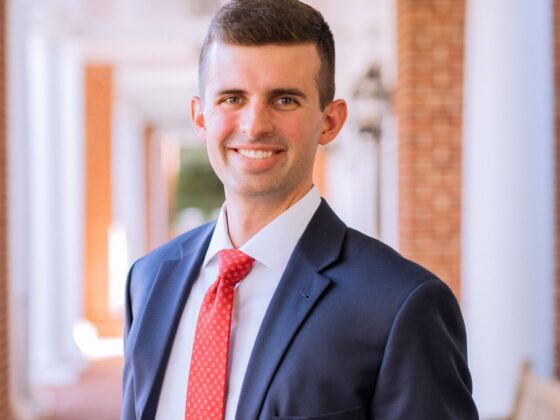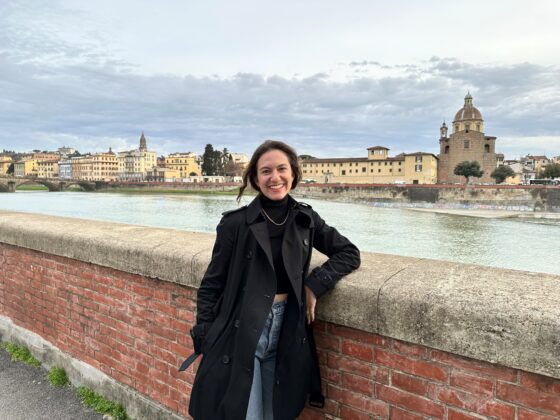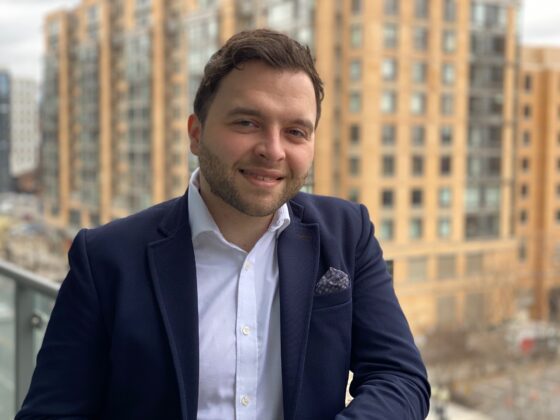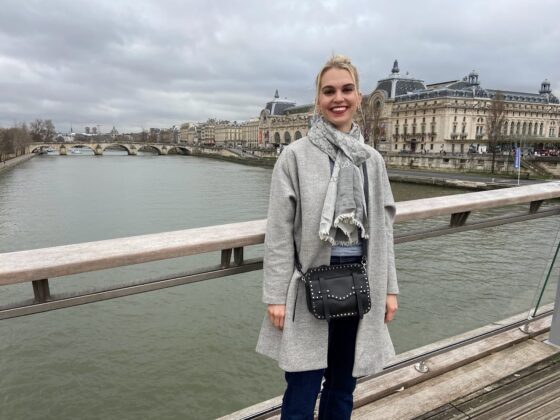At the end of January, the Darden African Business Organization (DABO) hosted its fourth annual Africa Business Week. This year, DABO turned a weeklong schedule of events into a nearly all-virtual program to comply with University COVID safety protocols. DABO board members capitalized on this new virtual reality by inviting speakers and participants from all over the globe, and delivered a week full of impactful events for over 250 virtual and in-person student, staff, alumni, prospective student and community attendees.
DABO secured speakers from locations such as Ghana, Nigeria and the U.S. to participate in this year’s series of virtual events, which included four online panel discussions on business opportunities in Africa’s agribusiness sector; private equity investments in Sub-Saharan Africa; the COVID healthcare response in Africa; and resource mobilization to finance Africa’s economic development. The week’s events also included a hybrid Caribbean cooking class, a Netflix Party film screening of The Journey Of An African Colony with a debrief session and a hybrid African wine tasting and Afrobeat Radio event.
DABO board members Sarah Getachew (Class of 2021) and Samuel Fosuhene (Class of 2021) shared more about this year’s Africa Business Week:
What impact do you hope this year’s Africa Business Week will have in the Darden community?
Sarah Getachew, DABO Admissions VP: Our vision for Africa Business Week (ABW) was to create a shared platform where participants could have the opportunity to learn about different cultures and business dynamics within Africa and the Caribbean; to network and engage with exceptional business leaders and entrepreneurs; and to highlight African start-ups and areas of business development, economic growth, as well as investment.
Samuel Fosuhene, DABO Finance VP: We hope that the Africa Business Week would promote and expand the commercial and investment opportunities on the continent. To borrow words from Dr. Coulibaly, our guest speaker for Thursday’s event on financing Africa’s economic development, our goal was to inspire the Darden community and others who participated to become “Afro-optimists” and guide them to see the continent through the lens of opportunities while exposing some of the challenges present on the continent as well.
What were the highlights of the week for you?
Sarah: ABW is a yearly flagship event for DABO, however this was the first time DABO brought ABW to a virtual platform. The transition online allowed us to engage, current students, alumni, admitted students, applicants and well as prospective students all over the world. Thus, ABW had a remarkable turnout and the facilitated discussions during our events were truly dynamic, with contributions from our esteemed panelists as well as our global audience. Secondly, in the past year, COVID-19 had a massive impact on the African continent, affecting healthcare systems as well as many industries. Throughout our conference we were able to explore the response to COVID in Africa (Wednesday’s event) as well as provide a deep-dive perspective of private equity investments in Sub-Saharan Africa (Tuesday’s event) and the top proprieties for business in Africa (Thursday’s event). Lastly, our hybrid cultural and social events energized ABW. We started the week with a traditional Ethiopian First Coffee event; by midweek we hosted a virtual wine-tasting and afrobeat radio session allowing participants to taste wines ranging from West Africa (Nigeria) to East Africa (Ethiopia); and we ended the Week with a traditional Caribbean cooking class where participants learned step-by-step directions for how to make two traditional dishes: Ackee and Saltfish from Jamaica and Fungee from Antigua and Barbuda.
How did you navigate planning a primarily virtual Africa Business Week?
Samuel: The virtual world presented some challenges and opportunities. For the board, the most important task was to create events that people will find interesting and match those events with the right speakers or resource people. Thankfully, our speakers were very responsive albeit the short notice. Each time we reached out to our speakers, we made sure we had concrete updates on planning, timing and the structure of the events. Hosting the event virtually relieved us of having to plan logistical aspects such as finding accommodation and transportation for the speakers. In terms of engagement, we made sure registrants signed up ahead of ABW, which especially helped with planning the events that involved distributing food and/or drinks. Lastly, we collaborated with other Darden student clubs to help us with marketing and promotion.
What has this club community meant to you during your Darden experience? Why did you run for a leadership position in DABO?
Samuel: The cultural gap between Africa and America can be very stark. Thus, for me, DABO created an avenue for a soft introduction into the American culture. The organization had members who were born in America, who have been here for a while or who generally know more about the culture here than I did, and who were ever ready to assist me. DABO provided the opportunity to connect with other people who share aspects of my identity, especially in situations in which those aspects of identity are in the minority.
On one hand, I was excited about the opportunity to put some of the leadership skills we have learned at Darden to practice. But more importantly, I wanted to help the organization advance its goal of connecting young African professionals and providing a safe space to discuss some of the pressing issues on the continent. Additionally, I saw a leadership position in DABO as an opportunity to dismantle negative misconceptions and develop positive perspectives about the continent through such events as Africa Business Week, and I believe we succeeded in that during this year’s ABW.





